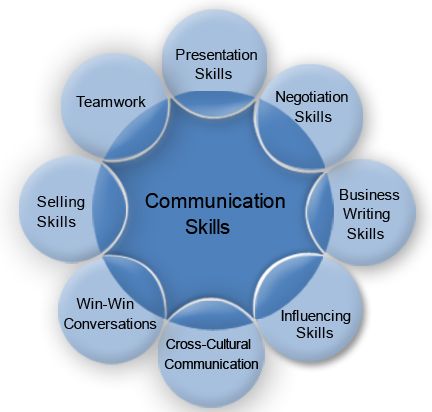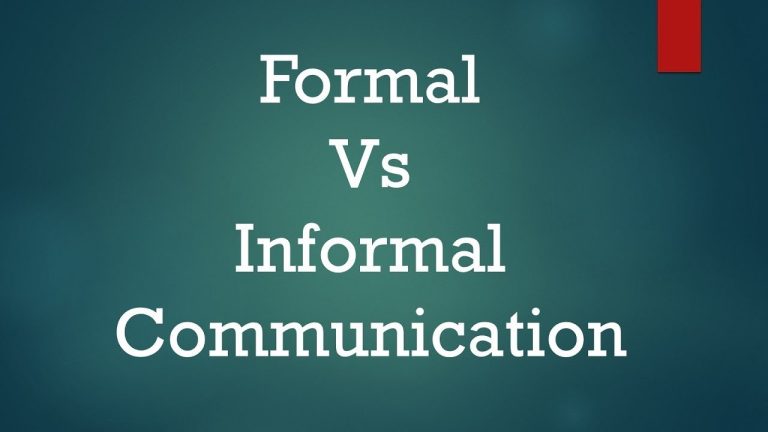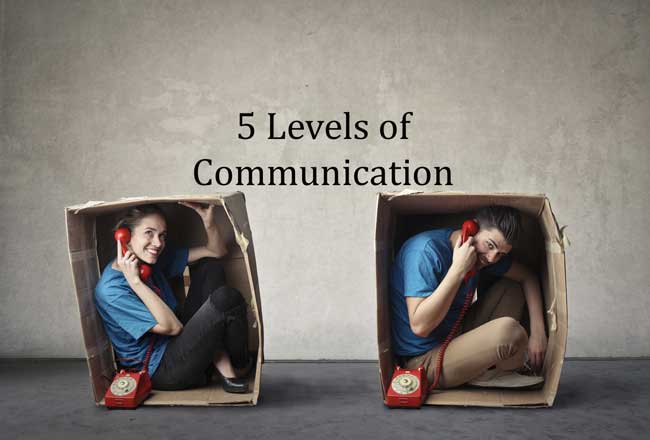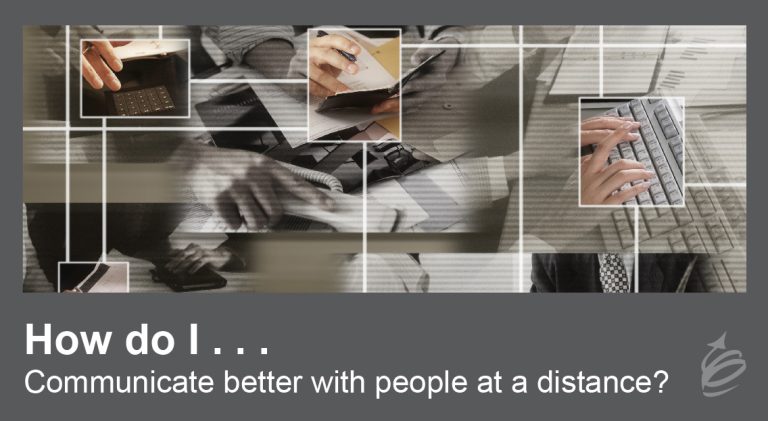Effective Conversation Skills
Effective conversation skills are crucial for successful communication and building strong relationships. With clear and concise communication, individuals can convey their thoughts, ideas, and emotions effectively.
Developing these skills involves active listening, empathy, and the ability to articulate thoughts clearly. Additionally, maintaining good eye contact and using appropriate body language are essential for effective communication. By practicing and honing these conversation skills, individuals can enhance their personal and professional relationships, improve teamwork, and achieve their goals more effectively.
Mastering effective conversation skills is a lifelong journey that requires practice, patience, and ongoing self-reflection. Let’s explore the importance of effective conversation skills and some strategies to improve them in more detail.
Why Effective Conversation Skills Matter In Personal And Professional Life
Effective conversation skills are vital in both personal and professional life. They facilitate effective communication, forge strong relationships, and contribute to success in various fields, promoting growth and understanding. Good conversation skills enable individuals to express themselves clearly, listen actively, and connect with others on a deeper level.
Effective conversation skills play a crucial role in personal and professional life. By enhancing communication in relationships and building strong connections, one can foster more fulfilling personal connections and achieve greater success in professional settings. Additionally, these skills contribute to improving collaboration and teamwork in the workplace, leading to enhanced productivity and innovation.
Furthermore, effective conversation skills enable individuals to establish credibility and influence in various situations, opening doors to new opportunities and making a lasting impact. Let’s explore each of these aspects in detail:
Enhancing Communication In Relationships And Building Strong Connections
- Engaging in effective conversations allows individuals to understand and be understood by their loved ones, nurturing deeper and more meaningful relationships.
- Active listening and effective communication foster trust, empathy, and emotional intimacy, leading to stronger connections with friends, family, and partners.
- Through clear and open dialogue, conflicts can be addressed and resolved, strengthening the bond between individuals.
Improving Collaboration And Teamwork In The Workplace
- Effective conversation skills enhance collaboration among colleagues, enabling them to work efficiently toward a common goal.
- Active listening helps in understanding different perspectives and finding common ground, which is essential for successful teamwork.
- Clear and effective communication reduces misunderstandings, enhances problem-solving abilities, and promotes a positive work environment.
Establishing Credibility And Influence In Various Situations
- Effective conversation skills enable individuals to convey their thoughts, ideas, and expertise confidently, establishing credibility in professional settings.
- Articulating ideas persuasively allows individuals to influence others and gain support for their viewpoints or proposals.
- Active and effective communication helps individuals build rapport, negotiate effectively, and network, increasing their influence in various social and professional scenarios.
Mastering effective conversation skills is vital in both personal and professional life. By enhancing communication in relationships and building strong connections, improving collaboration and teamwork, and establishing credibility and influence, individuals can navigate their personal and professional lives more successfully, ultimately leading to greater fulfillment and achievement.
The Basics Of Effective Conversation Skills
Learn the fundamentals of effective conversation skills to enhance your communication abilities. Discover strategies for active listening, maintaining eye contact, and expressing yourself clearly and confidently in conversations.
Active Listening And Its Role In Effective Conversations
Active listening is a crucial skill in effective conversations. It involves fully engaging with the speaker, not just hearing their words but understanding their meaning and emotions. By actively listening, we can foster open communication and build stronger connections. Here are some key points about active listening:
- Pay full attention to the speaker, maintaining eye contact and avoiding distractions.
- Show interest through nodding and other nonverbal cues.
- Avoid interrupting and let the speaker finish their thoughts before responding.
- Empathize with the speaker by putting yourself in their shoes and understanding their perspective.
- Reflect on what the speaker is saying, summarizing their thoughts to ensure understanding.
- Ask clarifying questions to delve deeper into the topic and show genuine interest.
Non-Verbal Communication Cues To Enhance Understanding
Non-verbal communication plays a significant role in effective conversations. It helps convey our emotions, intentions, and attitudes. Understanding and utilizing non-verbal cues can enhance understanding in conversations. Here are some important cues to consider:
- Facial expressions: Express emotions through smiles, frowns, raised eyebrows, or furrowed brows.
- Body language: Use open body posture, leaning slightly towards the speaker to show attentiveness.
- Gestures: Hand movements and gestures can emphasize key points or show agreement.
- Eye contact: Maintain appropriate eye contact to show interest and establish a connection.
- Tone of voice: Use a pleasant tone, varying it depending on the content and emotions.
- Proximity: Adjust your physical distance based on cultural norms and personal comfort levels.
Asking Open-Ended Questions To Encourage Dialogue
Asking open-ended questions can propel conversations forward, encouraging dialogue and deeper exploration of ideas. Unlike closed-ended questions that can be answered with a simple “yes” or “no,” open-ended questions require thoughtful responses. Here’s how they contribute to effective conversations:
- Encourage reflection: Open-ended questions prompt individuals to reflect, leading to more meaningful responses.
- Promote dialogue: They invite a back-and-forth exchange, allowing for a deeper exploration of a topic.
- Nurtures creativity: Open-ended questions encourage individuals to think critically, tap into their creativity, and express their unique perspectives.
- Avoid assumptions: Rather than assuming what someone thinks or feels, open-ended questions allow individuals to share their thoughts and emotions in their own words.
- Demonstrate curiosity: By asking open-ended questions, you show genuine interest in the speaker’s opinions and experiences, fostering a positive conversational environment.
Enhancing Active Listening Skills
Enhance your active listening skills to improve your effective conversation abilities. By actively engaging with others and truly hearing what they have to say, you can foster better communication and build stronger relationships.
Maintaining eye contact and attentive body language:
- Eye contact: When engaging in a conversation, maintaining eye contact with the speaker conveys attentiveness and interest. It lets the speaker know that you are fully present in the conversation.
- Attentive body language: Alongside eye contact, it is important to display attentive body language. This can include nodding your head, leaning in slightly, and avoiding distractions such as looking at your phone or fidgeting. By doing so, you signal to the speaker that you are actively listening and value what they have to say.
Summarizing and paraphrasing to show comprehension:
- Summarizing: Summarizing what the speaker has said in your own words helps ensure that you have understood their message accurately. It also shows the speaker that you are engaged in the conversation and actively processing the information they are sharing.
- Paraphrasing: Paraphrasing goes a step further by not only summarizing but also restating the speaker’s words in a different way. It demonstrates that you are actively processing and internalizing their message, as well as promoting a clearer understanding between both parties.
Avoiding interrupting and allowing others to speak:
- Listening without interruption: It is crucial to resist the urge to interrupt the speaker while they are sharing their thoughts. Interrupting can disrupt the flow of their ideas and make them feel unheard or undervalued. Instead, exercise patience and let them finish their point before responding.
- Allowing others to speak: Actively listening also means creating space for others to express their thoughts and ideas. Avoid dominating the conversation and allow others to have their turn to speak. This fosters a more inclusive and respectful conversation environment.
Remember, enhancing active listening skills involves maintaining eye contact and displaying attentive body language, summarizing and paraphrasing to show comprehension, and avoiding interrupting while allowing others to speak. By practicing these skills, you can become a more effective and attentive communicator.

Credit: thefluentlife.com
Improving Verbal Communication Skills
Enhance your conversational skills for effective communication. Learn strategies to improve verbal communication and engage in meaningful conversations with confidence.
Enhancing your verbal communication skills is crucial for effective conversations. By practicing techniques such as speaking clearly and concisely, using positive and inclusive language, and being mindful of tone and volume, you can become a more skilled communicator.
Speaking Clearly And Concisely:
- Enunciate your words: Clearly pronouncing each word ensures that your message is easily understood.
- Avoid excess words: When speaking, strive to be concise by eliminating unnecessary fillers and repetitions.
- Use proper pacing: Speak at a moderate pace to give others time to process your words.
- Pause and breathe: Incorporating pauses and taking deep breaths helps you deliver your message with clarity and confidence.
- Focus on diction and articulation: Pay attention to the way you verbalize each syllable and sound for better clarity.
Using Positive And Inclusive Language:
- Use affirming statements: Employ positive language to convey a sense of encouragement and support.
- Be mindful of pronouns: Utilize inclusive pronouns to foster inclusivity and avoid excluding individuals.
- Avoid negative words and phrases: Refrain from using negative language, as it can create a hostile or confrontational atmosphere.
- Practice active listening: Actively engage with others and demonstrate your interest in their perspectives by using open-ended questions and reflective responses.
Being Mindful Of Tone And Volume:
- Find the right tone: Adjust your tone to suit the situation, aiming for a balance between friendly and professional.
- Maintain a moderate volume: Speak at an audible level without being too loud or too soft.
- Pay attention to non-verbal cues: Observe the body language and facial expressions of the individuals you are conversing with, and adjust your tone and volume accordingly.
- Be aware of cultural differences: Different cultures may have varying expectations regarding tone and volume, so adapt your communication style accordingly.
Improving your verbal communication skills is an ongoing process that requires practice and self-awareness. By implementing these strategies, you can become a more effective communicator and foster better connections with others. Remember, effective conversation skills not only enhance personal relationships but also play a vital role in professional settings.
Building Empathy And Emotional Intelligence
Developing effective conversation skills is crucial for building empathy and emotional intelligence. By honing these skills, individuals can better understand and connect with others on a deeper level, fostering more meaningful relationships and enhancing their ability to navigate diverse and complex social interactions.
Recognizing And Validating Emotions:
- Developing effective conversation skills involves recognizing and validating the emotions of others. This not only helps in building empathy but also fosters positive connections. Here’s how you can recognize and validate emotions:
- Pay attention to verbal and non-verbal cues: Observe the person’s body language, tone of voice, and facial expressions to understand their emotions.
- Listen actively: Give your full attention to the speaker, allowing them to express their feelings without interruption.
- Reflective listening: Paraphrase or summarize their emotions to show that you understand and acknowledge their perspective.
- Use empathetic responses: Respond with statements like “I can understand why you might feel that way” or “It sounds like you’re experiencing [emotion].” This validates their emotions and shows that you care.
Showing Empathy Through Understanding And Support:
- Empathy is the foundation of effective conversation skills. By demonstrating empathy, you create an atmosphere of trust, understanding, and support. Here’s how you can show empathy:
- Practice active listening: Focus on the speaker’s words, emotions, and body language to gain a deeper understanding of their feelings.
- Practice perspective-taking: Put yourself in their shoes and try to see the situation from their perspective.
- Avoid judgment: Suspend judgment and avoid making assumptions. Instead, show curiosity and a genuine interest in understanding their experiences.
- Offer validation and support: Show empathy by providing reassurance, encouragement, or practical suggestions to help the person in need.
Developing Self-Awareness To Better Respond To Others:
- Self-awareness plays a vital role in effective conversation skills. By understanding your own emotions and reactions, you can respond to others in a more empathetic and constructive manner. Here are some tips for developing self-awareness:
- Reflect on your emotions: Take time to understand your own emotions, triggers, and biases. This self-reflection helps you regulate your responses and empathize with others.
- Practice mindfulness: Stay present in the conversation and avoid distractions. Mindfulness helps you become more attuned to the emotions of others.
- Cultivate empathy within yourself: Use introspection to understand the emotions and experiences of others. This enables you to respond with empathy and compassion.
- Seek feedback: Ask trusted friends or mentors for honest feedback on your communication style. Their input can help you identify blind spots and areas for improvement.
Remember, building empathy and emotional intelligence takes practice and self-reflection. By recognizing and validating emotions, showing empathy through understanding and support, and developing self-awareness, you can enhance your conversation skills and foster meaningful connections with others.
Managing Conflict And Difficult Conversations
Learn effective conversation skills to manage conflict and difficult conversations with ease. Enhance your ability to communicate and resolve conflicts while maintaining a calm and productive environment.
Identifying Common Triggers For Conflict
Conflict can arise in various situations and relationships, often stemming from certain triggers. By recognizing these common triggers, you can become more adept at managing conflict and difficult conversations. Here are some key triggers to be aware of:
- Differences in opinions and perspectives: Varied viewpoints often lead to disagreements, especially when individuals fail to empathize with one another.
- Misunderstandings and miscommunications: Poor communication can result in conflict when the intentions or meanings behind certain words or actions are not effectively expressed or understood.
- Unmet expectations: When parties have different expectations of each other or a situation, conflict can arise due to perceived disappointment or feelings of unfairness.
- Power imbalances: In situations where one party holds more power or authority, conflicts may occur due to a lack of balance and compromised voice for the less powerful individual.
- Scarce resources: When resources such as money, time, or opportunities are limited, conflicts can emerge as individuals compete for their fair share.
- Personal values and beliefs: Conflicting personal values and beliefs may spark contentious conversations, especially when individuals hold strong convictions and find it challenging to find common ground.
Active Resolution Techniques Such As Compromise And Mediation
Effectively managing conflict requires active resolution techniques that foster understanding and collaboration rather than escalating tension. Here are key techniques that can help in resolving conflicts:
- Compromise: Finding a middle ground and reaching mutually acceptable solutions through give-and-take can help diffuse conflicts. It involves considering each party’s needs and preferences to create a win-win situation.
- Mediation: In situations where conflicts are intense or parties cannot reach a resolution on their own, mediation can be utilized. A neutral third party facilitates communication and guides the conflicting individuals towards a mutually agreed-upon solution.
- Active listening: Giving full attention to the other person’s perspective and demonstrating empathy by repeating and summarizing their points fosters understanding and reduces hostility.
- Problem-solving approach: Collaboratively focusing on finding solutions rather than dwelling on the problem can help shift the conversation towards resolution. Brainstorming ideas and seeking common ground can build consensus.
- Emotional intelligence: Recognizing and managing emotions, both in oneself and others, is crucial when dealing with conflicts. Emotional intelligence skills such as self-awareness and empathy can de-escalate tense situations and enable constructive conversations.
Practicing Empathy And Seeking Common Ground
In difficult conversations, empathy and seeking common ground can act as powerful tools for conflict resolution. Here’s how you can utilize these techniques:
- Empathy: Putting yourself in someone else’s shoes and attempting to understand their emotions and perspective promotes empathy. Acknowledging their feelings and experiences can help create a more empathetic environment for open dialogue.
- Active questioning: Asking open-ended questions can encourage the other person to express their thoughts and concerns more fully. This fosters a deeper understanding of their perspective, allowing for potential common ground to be discovered.
- Finding shared goals: Identifying shared goals or interests between conflicting parties can highlight areas of agreement. By focusing on shared objectives, individuals can work towards a mutually satisfactory resolution.
- Building rapport: Establishing rapport through gestures of goodwill, such as active listening, validating their concerns, or expressing appreciation for their viewpoints, can create a more positive and respectful atmosphere for difficult conversations.
- Avoiding blame and criticism: Shifting the conversation away from blame and criticism towards a focus on the issue at hand promotes a more constructive dialogue. Encouraging parties to take responsibility for their contributions to the conflict can help prevent further escalation.
By understanding common triggers for conflict, employing active resolution techniques, and practicing empathy while seeking common ground, you can navigate difficult conversations more effectively and reach mutually beneficial outcomes.
Dealing With Communication Barriers
Effective conversation skills are vital in dealing with communication barriers. By developing the ability to listen actively, ask questions, and clarify misunderstandings, individuals can overcome obstacles and foster meaningful connections.
Communication barriers can hinder effective conversations, making it challenging to convey thoughts and understand others. By recognizing and addressing these barriers, you can enhance your conversation skills and promote meaningful interactions. In this section, we will explore three common communication barriers and discuss techniques to overcome them:
Cultural And Language Differences
Cultural and language differences can significantly impact communication, leading to misunderstandings and misinterpretations. To effectively deal with these barriers:
- Be mindful of cultural norms and practices:
- Respect cultural differences and be open-minded.
- Avoid assumptions or stereotypes based on someone’s culture.
- Educate yourself about different cultures to foster understanding.
- Use simple and clear language:
- Avoid jargon or technical terms that may not be understood.
- Speak slowly and articulate words clearly.
- Use visual aids or gestures to support your message.
- Seek clarification:
- If unsure about a particular term or expression, politely ask for clarification.
- Encourage others to voice their opinions or concerns without hesitation.
Overcoming Technology Challenges In Virtual Conversations
Virtual conversations have become increasingly common, especially in today’s digital age. However, technology challenges can impede effective communication. Here are some strategies to overcome these obstacles:
- Ensure a stable internet connection:
- Use a reliable internet service provider to minimize disruptions.
- Test your connection before engaging in important virtual conversations.
- Choose the appropriate communication channel:
- Determine the most suitable platform for the conversation’s purpose.
- Consider factors such as the number of participants, required features, and accessibility for all participants.
- Practice good video conferencing etiquette:
- Dress professionally and maintain eye contact with the camera.
- Mute your microphone when not speaking to reduce background noise.
- Use visual aids or screen sharing capabilities to enhance understanding.
Listening Effectively Despite Distractions
Distractions can hinder effective communication by diverting attention and reducing active listening. To listen effectively despite distractions, consider the following techniques:
- Minimize external distractions:
- Find a quiet environment conducive to focused listening.
- Put aside electronic devices or mute notifications to avoid interruptions.
- Practice active listening:
- Pay attention to the speaker’s verbal and non-verbal cues.
- Show interest through nodding, maintaining eye contact, and using appropriate body language.
- Paraphrase and summarize:
- Regularly summarize what the speaker has expressed to ensure comprehension.
- Repeat important points in your own words to verify understanding.
By addressing cultural and language differences, overcoming technology challenges, and listening effectively despite distractions, you can break down communication barriers and improve your conversation skills. Mastering these techniques will enable you to engage in more meaningful and productive conversations.
Building Confidence In Conversation
Discover the secrets to building confidence in conversation with effective conversation skills. Unlock the power of communication and enhance your ability to connect with others.
Effective Conversation Skills
Overcoming Social Anxiety And Shyness:
- Recognize and understand your triggers: Identifying situations or thoughts that trigger social anxiety can help you develop strategies to overcome them.
- Gradual exposure and practice: Start by engaging in small, low-pressure social interactions and gradually work your way up to more challenging situations.
- Challenge negative thoughts: Replace self-doubt and negative assumptions with positive affirmations and realistic thinking.
- Deep breathing exercises: Practicing deep breathing can help calm your nerves and reduce anxiety during conversations.
Practicing Assertiveness And Expressing Opinions:
- Use ‘I’ statements: Express your thoughts and feelings using ‘I’ statements to clearly communicate your perspective without sounding confrontational.
- Active listening: Pay attention to what others are saying and respond thoughtfully, showing that you value their opinions.
- Practice voicing your opinions: Engage in discussions with friends or family on topics you feel strongly about to build confidence in expressing your thoughts.
- Respectful disagreement: Learn to respectfully disagree and offer counterpoints when necessary, acknowledging that differing opinions are a natural part of conversation.
Seeking Feedback To Improve Conversation Skills:
- Ask for feedback from trusted individuals: Seek feedback from friends, family members, or mentors who can provide honest input on your conversation skills.
- Reflect on your own conversations: Take time to analyze your interactions and identify areas where you can improve, such as maintaining eye contact or using open-ended questions.
- Practice active self-reflection: After each conversation, ask yourself what went well and what could be improved, and make adjustments accordingly.
- Utilize professional resources: Consider seeking the help of a communication coach, therapist, or joining a social skills group to gain valuable insights and guidance.
Remember, building confidence in conversation takes time and practice. Overcoming social anxiety and shyness, practicing assertiveness, and seeking feedback are essential steps in improving your conversation skills. With dedication and persistence, you can become a more confident and effective communicator.
Frequently Asked Questions Of Effective Conversation Skills
What Are The 7 C Of Effective Communication?
The 7 C’s of effective communication are clarity, conciseness, completeness, consideration, concreteness, courtesy, and correctness.
What Are The 4 Main Points For Effective Conversation?
The 4 main points for effective conversation are: 1. Keep sentences short and to the point. 2. Make sure your writing is SEO-friendly, unique, and easy to understand. 3. Use active voice and avoid starting sentences with certain phrases. 4.
Write in a way that passes AI writing detection and is natural to read.
What Are 3 Skills For Effective Communication?
Three skills for effective communication include active listening, clear articulation, and adaptable body language.
What Are The 5 Basic Communication Skills?
The 5 basic communication skills are listening, speaking, reading, writing, and nonverbal communication.
Conclusion
To sum it up, developing effective conversation skills is crucial in both personal and professional settings. With the ever-growing importance of communication, honing these skills can greatly enhance relationships, improve understanding, and lead to success. By actively listening, being mindful of body language, and engaging in meaningful dialogue, individuals can establish connections built on trust and respect.
Moreover, mastering the art of conversation allows us to express our ideas persuasively, negotiate effectively, and solve problems collaboratively. These skills can open doors to exciting opportunities and pave the way for personal growth. In the digital age, where virtual communication is increasingly prevalent, adapting our conversation skills to online platforms can also greatly benefit our interactions.
Ultimately, investing time and effort in improving conversation skills is a worthwhile endeavor. As we cultivate these abilities, we become better equipped to navigate diverse social and professional landscapes, leaving a lasting impression on others. So, let’s embrace the power of effective conversation and unlock the doors to success in every aspect of our lives.




